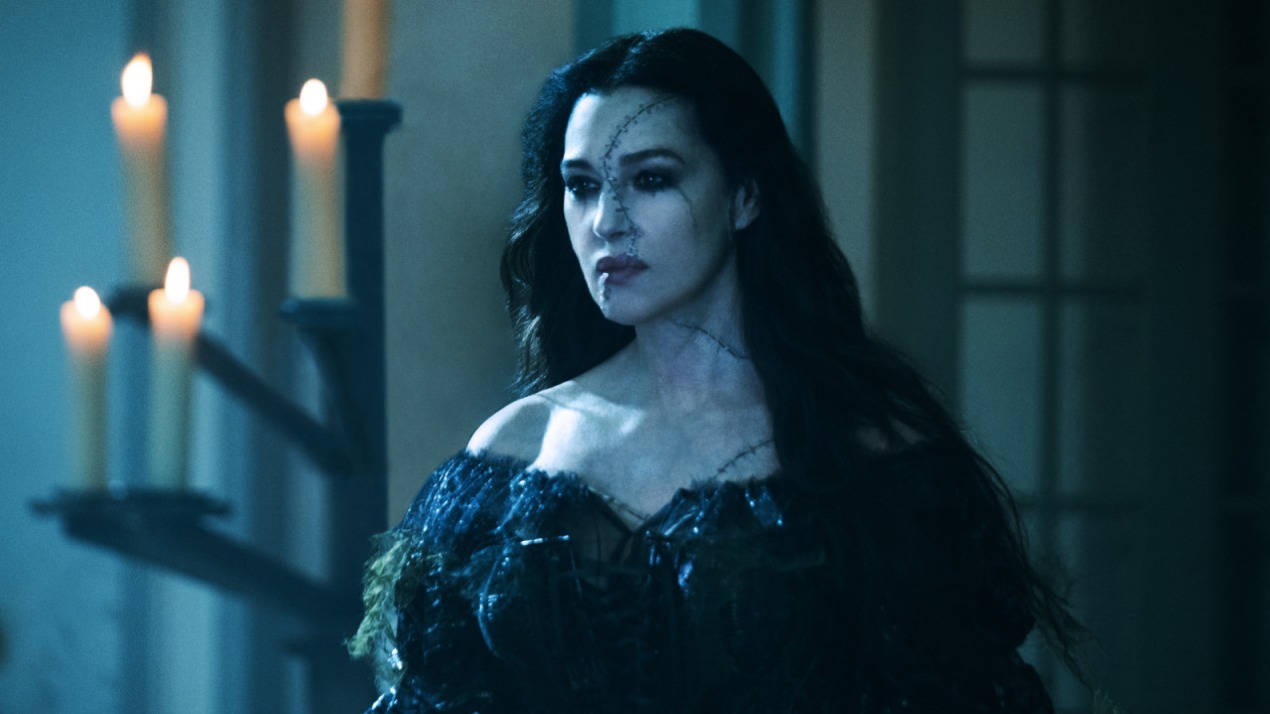From Malèna to The Matrix Reloaded, we rank Monica Bellucci’s 15 best movie roles. A look at the performances that made her an icon of international cinema.
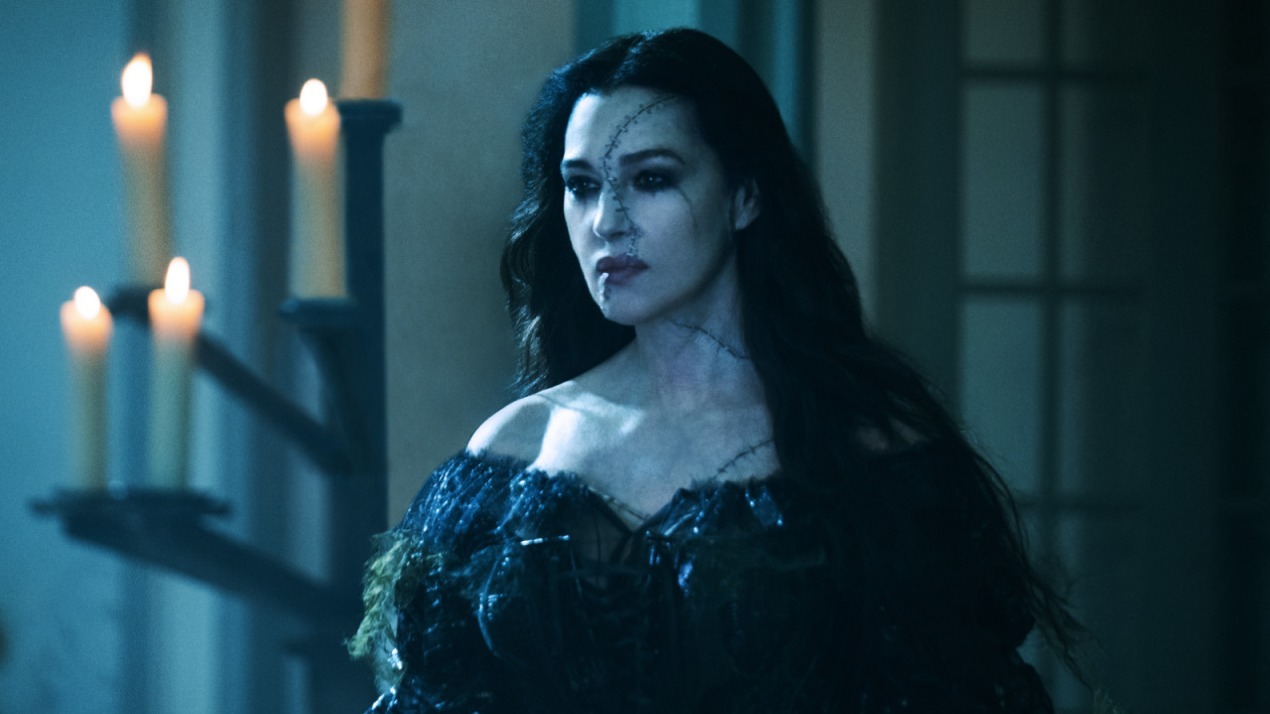
Monica Bellucci has spent decades turning heads – not just with her timeless beauty, but with performances that swing effortlessly between heartbreak, danger, and pure cinematic magic. From arthouse dramas to blockbuster spectacles, she’s carved out a filmography that’s as eclectic as it is iconic. And yes, we’ve done the impossible: ranking them.
But before you sharpen your pitchforks or scream “Where’s Malèna?!”, know that this list celebrates every era of Bellucci’s career, from her early European gems to her Hollywood power moves. Whether you’re a lifelong fan or just Bellucci-curious, you’re about to rediscover why she’s one of cinema’s most magnetic presences.
15. The Matrix Revolutions (2003)
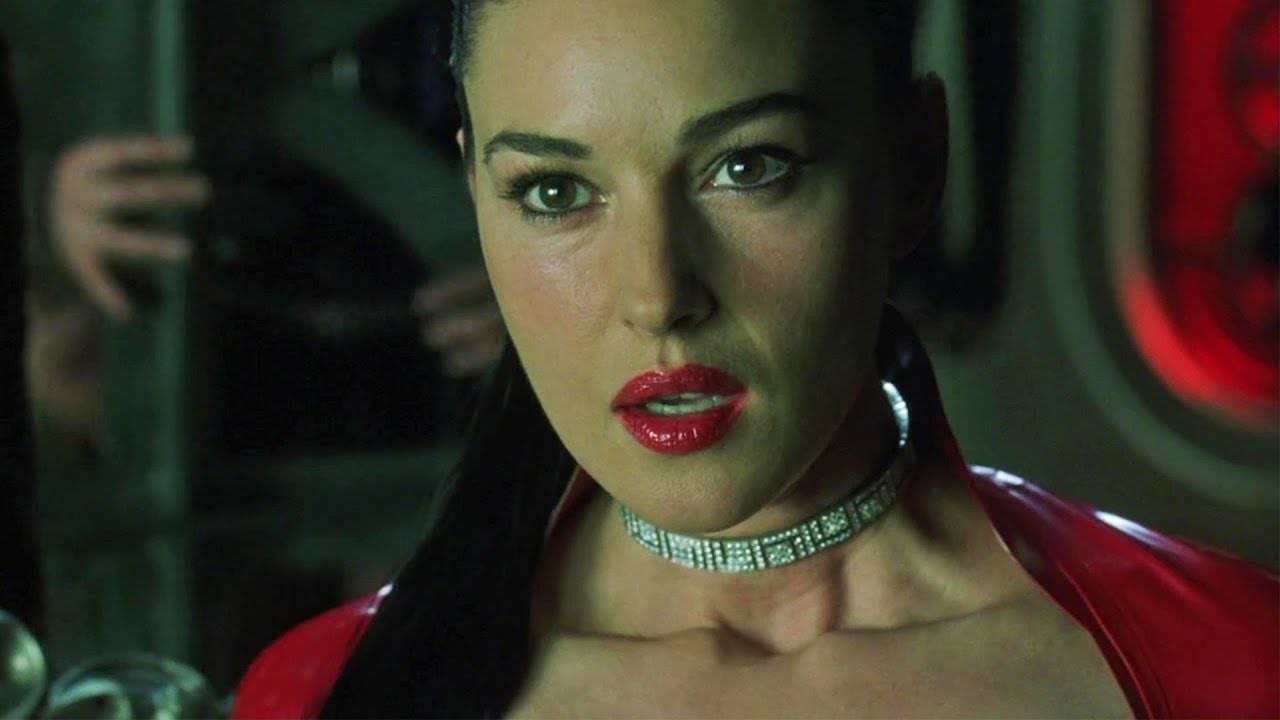
Persephone doesn’t get much screen time, but Monica Bellucci makes every moment feel electric. In The Matrix Revolutions, she’s all elegance and menace, gliding through digital decadence like she owns it – and honestly, she kind of does. Once dismissed as a stylish distraction, her character now reads as something richer: a ghost in the machine, watching humanity burn while craving a taste of it. Bellucci plays her like a living contradiction – bored yet hungry, immortal yet aching. She may not throw punches like Neo or Trinity, but she leaves a sharper mark, proof that power can come wrapped in velvet.
14. Under Suspicion (2000)
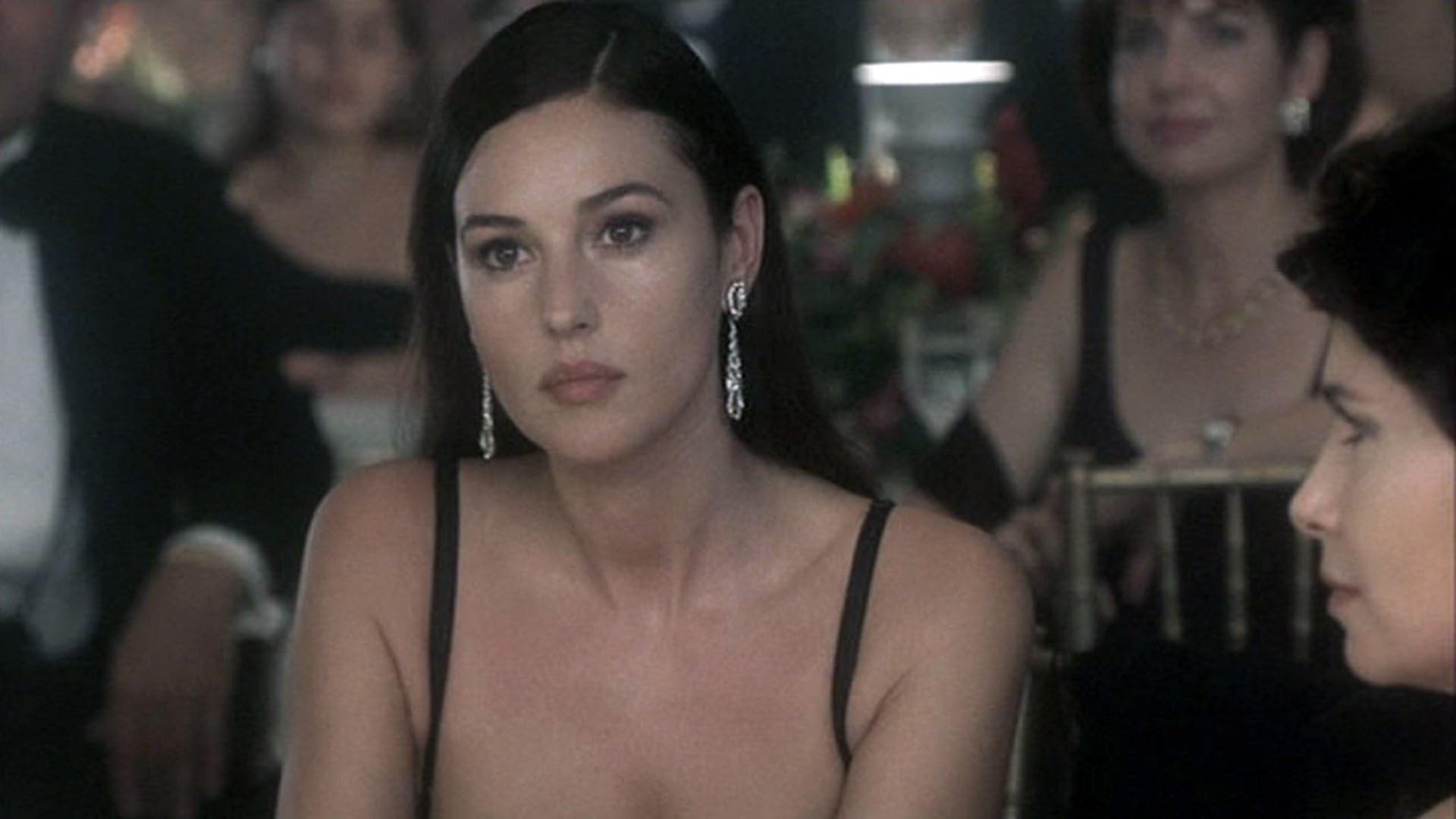
Few actresses could pull off what Bellucci does here: embody suspicion itself. As Chantal, she’s the wife caught in a storm of doubt, moving between icy control and emotional implosion without ever tipping her hand. Early on, audiences weren’t sure what to make of her – too enigmatic, too distant – but that’s exactly the point. She lets you project your own fears onto her until the truth hits like a slap. Bellucci weaponizes stillness, turning silence into accusation. What starts as a story about guilt becomes one about perception, and she walks that razor’s edge with unnerving precision.
13. Asterix & Obelix: Mission Cleopatra (2002)
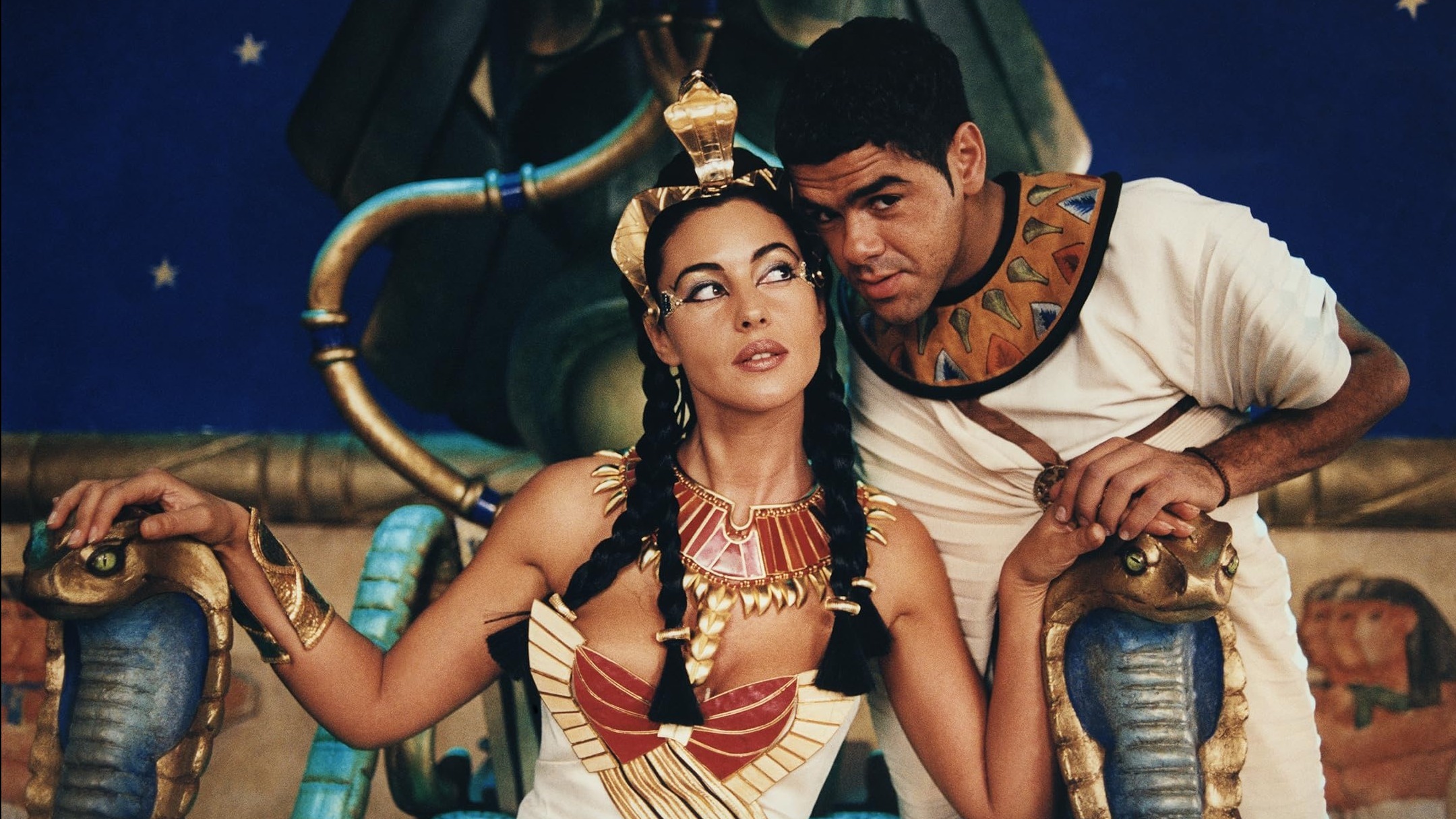
Here’s where Bellucci unleashed her comedic side – and audiences didn’t see it coming. Her Cleopatra is gloriously vain, effortlessly commanding, and so self-aware she almost feels like she’s in on the joke. Every line drips with irony and charm, making her impossible not to adore. At first, some thought she was too glamorous for slapstick; then she went ahead and made it look effortless. There’s a wink in her delivery, a subtle “I know exactly how ridiculous this is, and I’m loving it.” It’s camp, it’s class, and it’s the moment Bellucci proved she could do anything.
12. Tears of the Sun (2003)
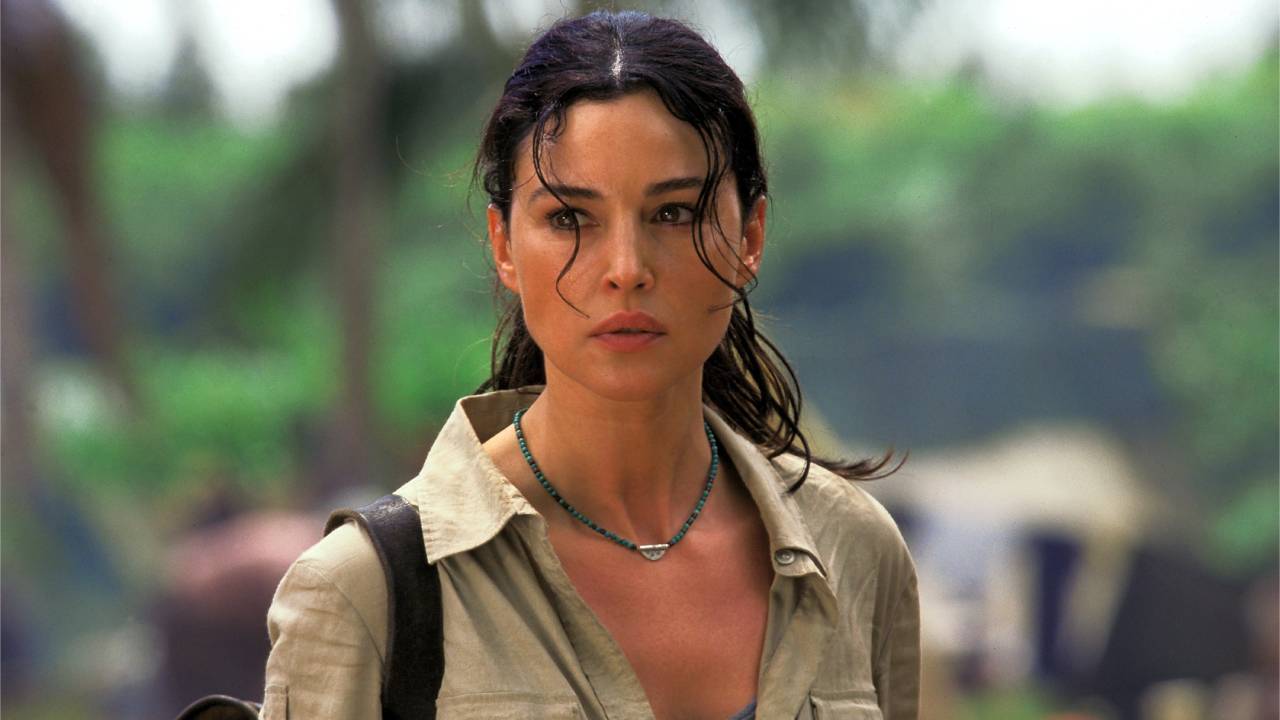
In a film full of hardened soldiers, Bellucci brings something the others can’t: quiet defiance. Her Dr. Lena Kendricks isn’t a damsel in distress – she’s the conscience of the movie, the one who refuses to let morality become collateral damage. Early viewers underestimated her, expecting fragility, but she anchors the story with stubborn compassion. Bellucci plays her with fierce restraint, a doctor who sees too much and still chooses to care. There’s no melodrama here, just humanity – something raw enough to make even the stoic soldiers pause. She’s not the hero who fires bullets; she’s the one who gives them meaning.
11. The Matrix Reloaded (2003)
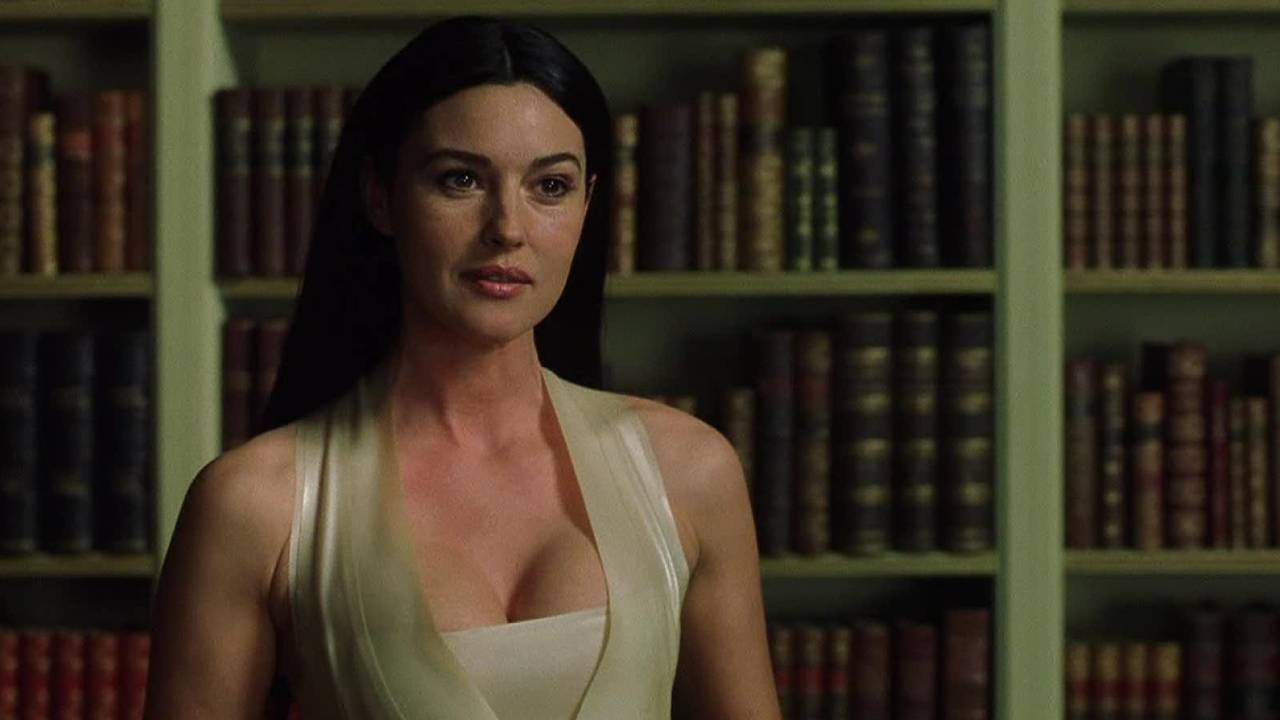
Enter Persephone, the digital femme fatale who steals the movie with a single kiss. Bellucci turns what could’ve been a throwaway role into pure intrigue – dangerous, sensual, and heartbreakingly lonely. She’s trapped in a world of perfection and still manages to make imperfection look divine. Critics once wrote her off as just another glamorous distraction, but time’s been kind to her performance. There’s a melancholy under all that silk and lipstick, a longing that feels more real than the code around her. It’s the kind of role only Bellucci could make feel both mythic and human at once.
10. Spectre (2015)
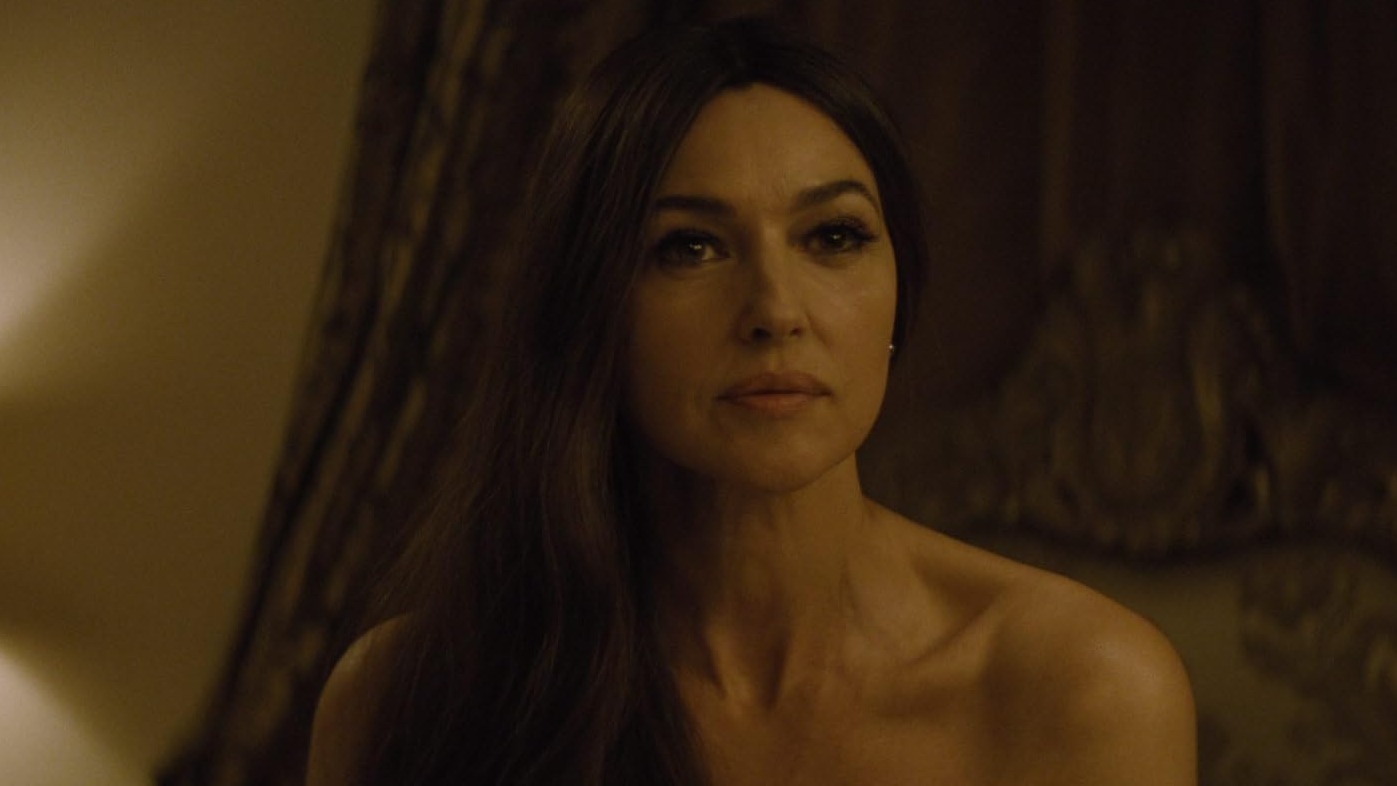
It’s almost unfair how little screen time Bellucci gets in Spectre, because she walks into that Bond movie like she’s been the franchise’s missing ingredient all along. Lucia Sciarra isn’t the usual wide-eyed conquest – she’s weary, wounded, and far more dangerous than the assassin sent to kill her. Bellucci plays her like someone who’s seen too much of this world and is still willing to take the risk. There’s a vulnerability behind the poise, and that mix makes her scene with Daniel Craig pulse with real tension. Even in a movie packed with explosions and gadgets, it’s their brief encounter that feels alive.
9. Bram Stoker’s Dracula (1992)
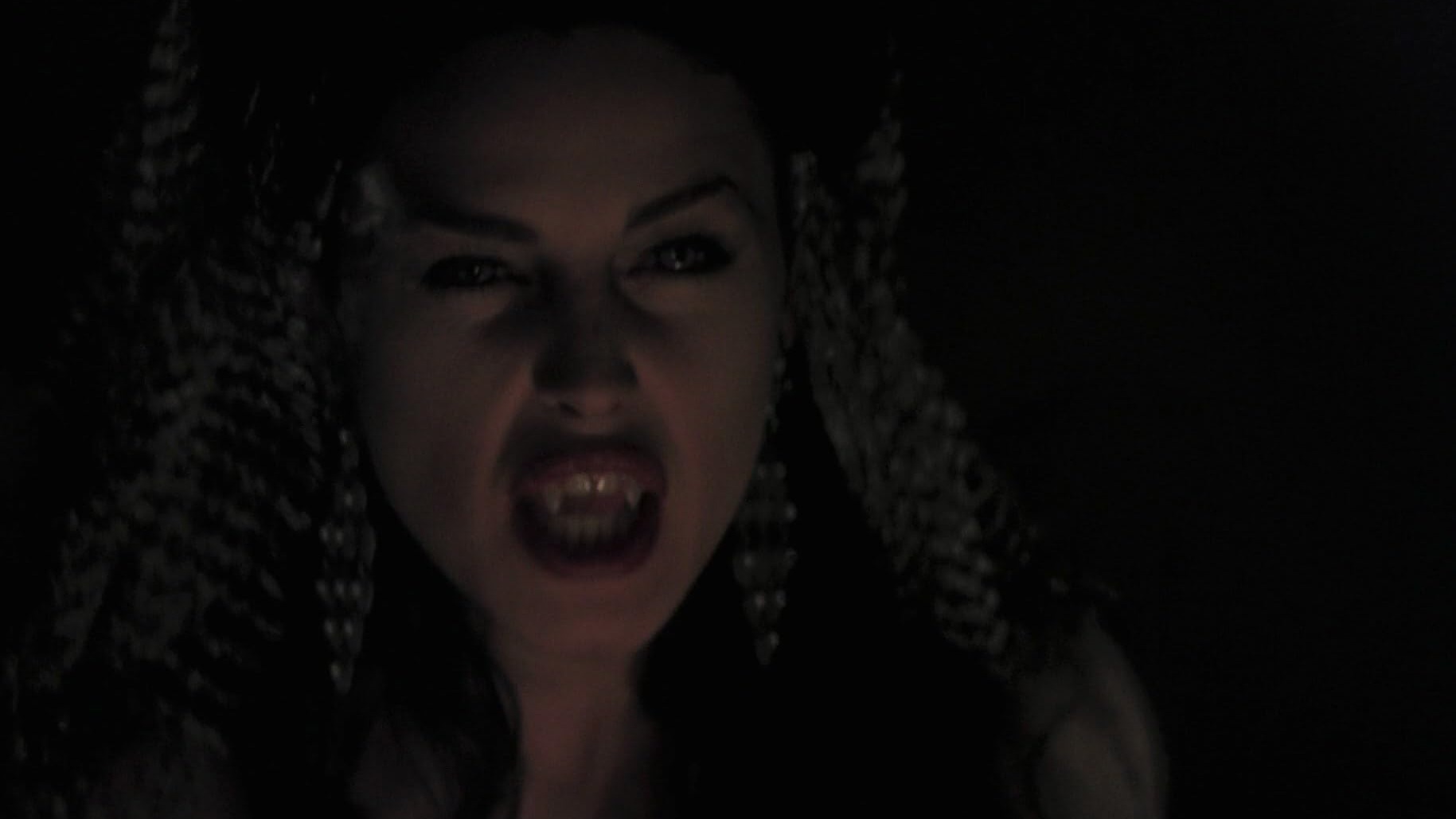
Bellucci’s vampire bride doesn’t say much, but silence has rarely been this hypnotic. In Bram Stoker’s Dracula, she floats through shadows like a fever dream – half horror, half desire – and somehow leaves more of a mark than characters with ten times the dialogue. There’s something fascinating about how she treats seduction not as performance, but as hunger, making every movement feel inevitable. You can see the origins of her screen magnetism here: control wrapped in chaos. Even surrounded by gothic excess, she looks like she belongs to another dimension entirely – one that’s both terrifying and irresistible.
8. The Whistleblower (2010)
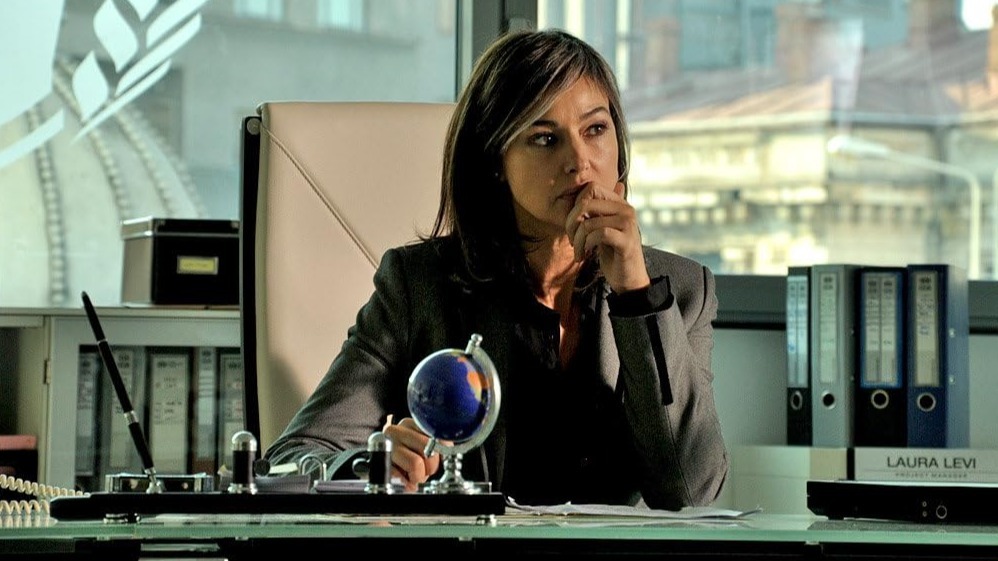
This is Bellucci stripped of glamour, trading elegance for conviction. As Laura Leviani, she turns what could have been a supporting part into a moral compass with bite. The film’s bleak subject matter – human trafficking in a war-torn region – gives her little room to play, but she finds power in understatement. There’s steel under her calm, a kind of fatigue that reads like quiet fury. She doesn’t shout or grandstand; she listens, she reacts, she challenges. It’s a performance that sneaks up on you, proving she doesn’t need the spotlight to command the frame – she just needs truth.
7. Shoot ’Em Up (2007)
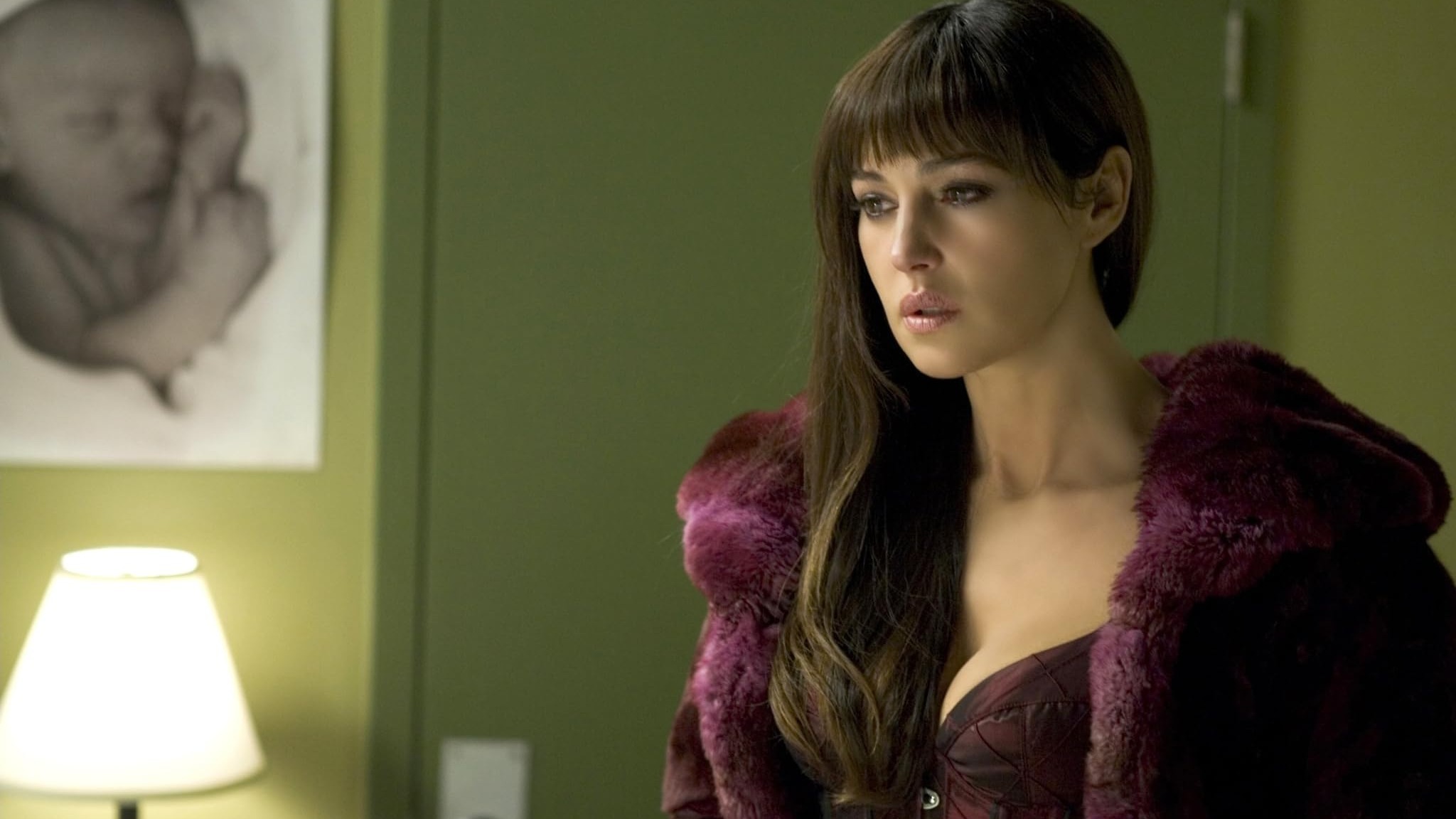
This movie is chaos on caffeine, and Bellucci meets it on its own absurd terms. Playing Donna Quintano, she brings warmth and humanity to a film that gleefully forgets both exist. Between the flying bullets and over-the-top stunts, she somehow builds a real character – wounded, sarcastic, and more grounded than the rest of the madness around her. What’s fun is how she never plays the damsel; she’s the only one who seems to realize how insane everything is, and that awareness makes her the film’s secret weapon. In a world gone cartoonish, she keeps it human, and that’s no small feat.
6. The Man Who Sold His Skin (2020)
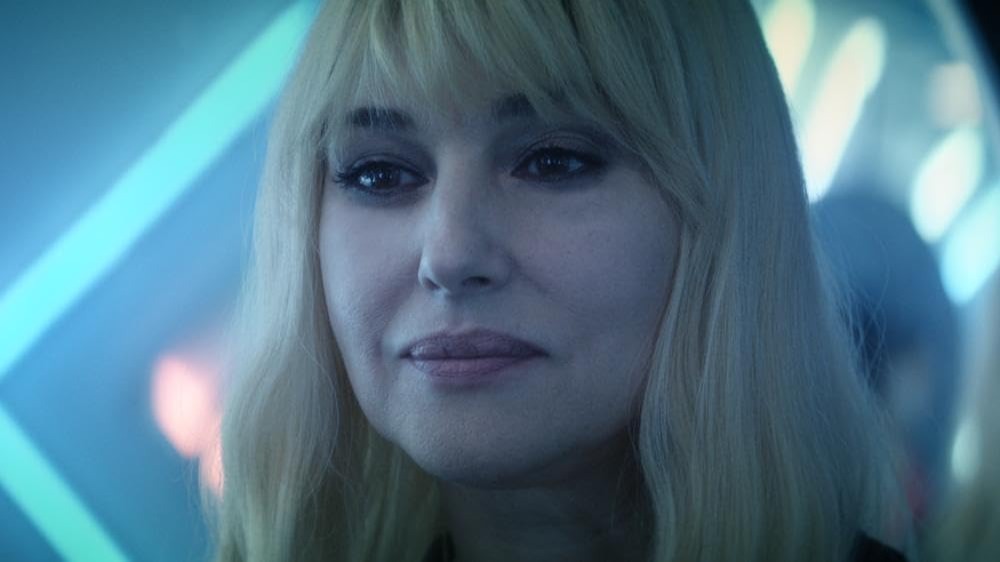
Years into her career, Bellucci could’ve coasted on reputation. Instead, she turned up in The Man Who Sold His Skin and reminded everyone how unpredictable she can be. As the elegant, enigmatic art dealer Soraya, she’s both muse and menace – guiding the film’s wild concept with a calm that feels otherworldly. There’s a delicious ambiguity to her presence: is she protecting her protégé, or just curating his downfall? Bellucci leans into that uncertainty, never blinking, never giving the audience the comfort of knowing. It’s a late-career masterclass in restraint, mystery, and sheer command.
5. Brotherhood of the Wolf (2001)
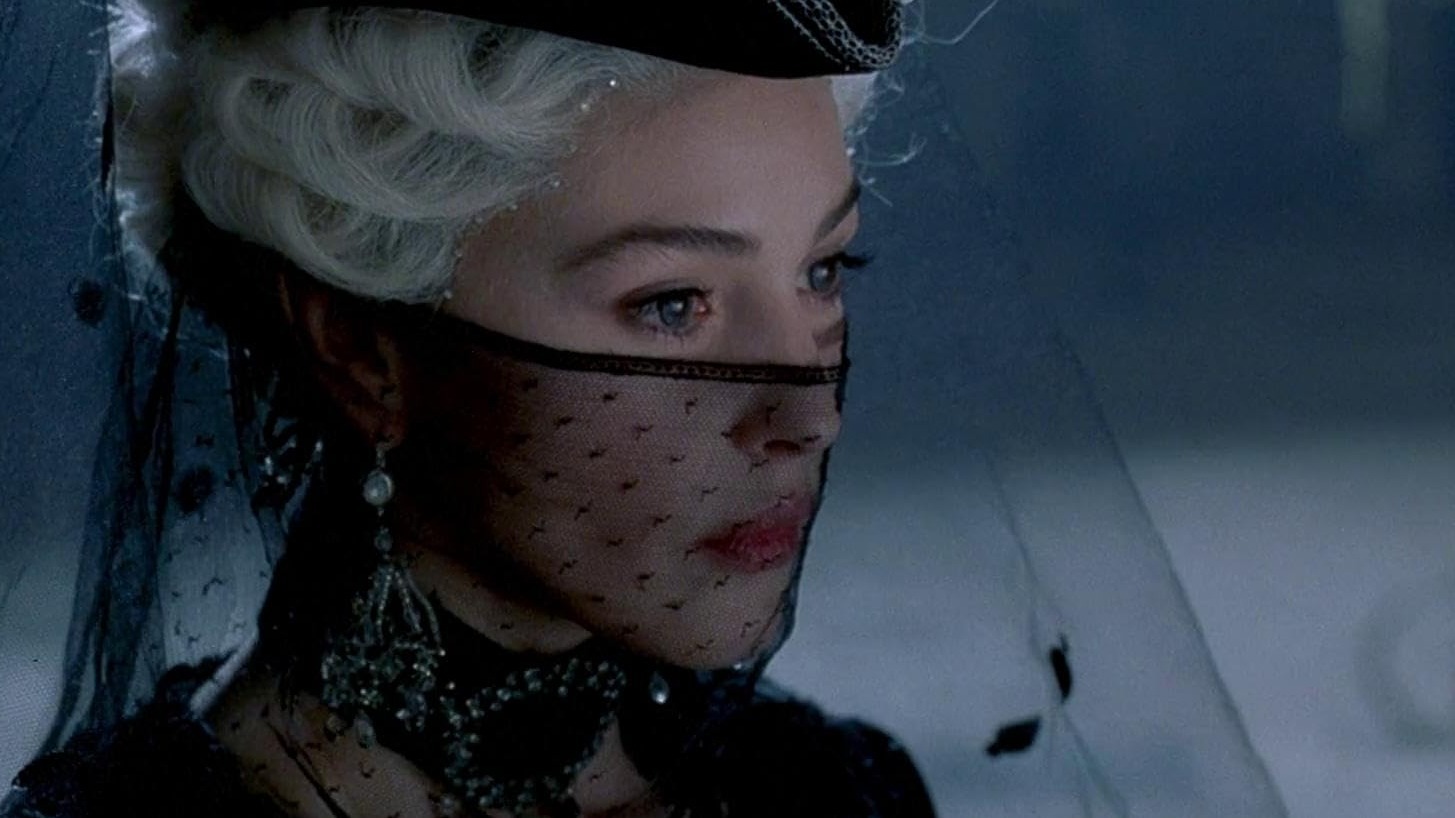
In Brotherhood of the Wolf, Bellucci doesn’t just appear – she materializes like an omen. As Sylvia, the mysterious courtesan with secrets deeper than the film’s fog-soaked forests, she walks the line between seduction and strategy with surgical precision. Early viewers underestimated her, expecting little more than a glamorous distraction, but her character’s quiet authority makes her essential to the mystery. She’s one of those presences that lingers long after the plot’s untangled, all perfume and peril. Bellucci turns intrigue into an art form, proving she can play enigmatic without ever being ornamental.
4. The Apartment (1996)
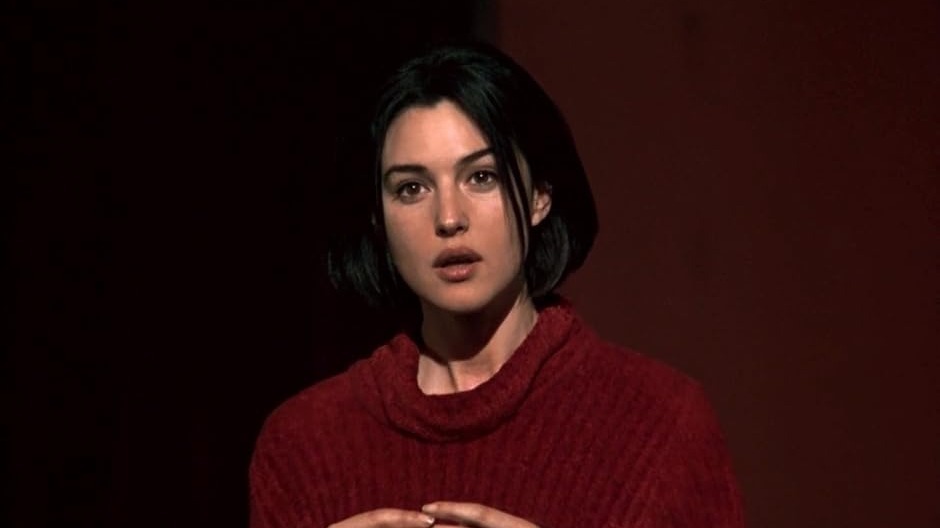
This is where the Monica Bellucci mystique really took shape. In The Apartment, she radiates that kind of allure that burns slowly – half vulnerability, half danger – and it’s impossible to look away. Lisa feels like she’s always hiding something, but what makes the performance special is how much emotion seeps through the cracks. Bellucci gives the role texture: a woman driven by obsession and longing, both victim and conspirator in her own undoing. It’s an early showcase of her ability to make contradiction feel completely natural, and it set the tone for the fascinating roles that would follow.
3. The Passion of the Christ (2004)
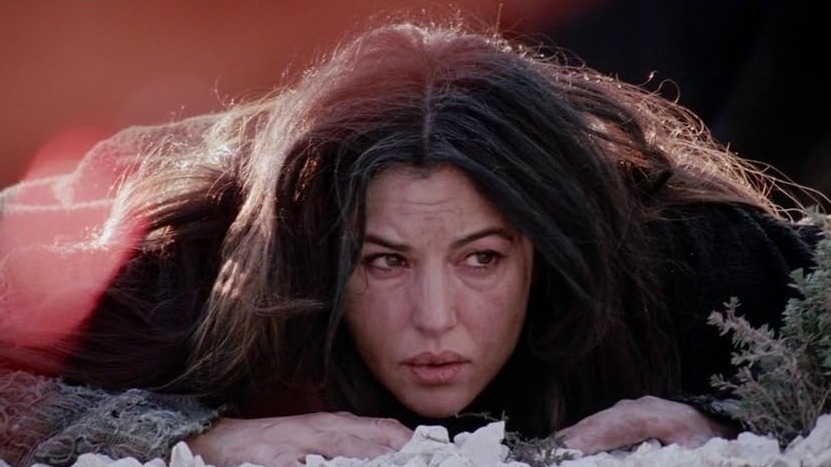
Playing Mary Magdalene could have easily turned into a footnote in a film defined by pain, but Bellucci gives the role a quiet dignity that cuts through the brutality. She doesn’t need speeches or spectacle – just presence. Every look, every restrained gesture carries centuries of grief and faith, and somehow she becomes the emotional anchor of a film obsessed with suffering. There’s a raw compassion in her performance that redefines what redemption looks like onscreen. Critics may have debated the film’s intensity, but no one questioned her sincerity. It’s the kind of work that lingers long after the final frame.
2. Irreversible (2002)
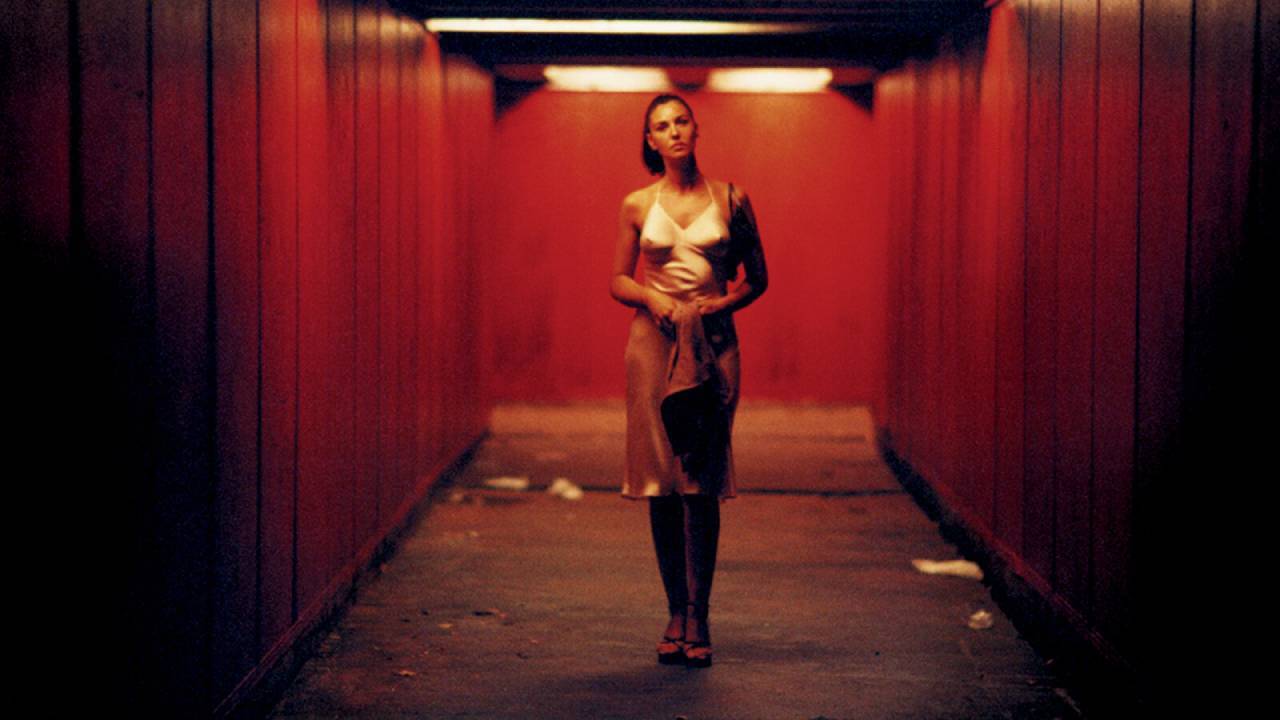
There are performances that challenge an actor, and then there’s Irreversible. Bellucci’s turn as Alex is devastating – unflinching, vulnerable, and terrifyingly human. The film’s reverse structure means you meet her tragedy before you meet her warmth, which makes the heartbreak even sharper when the timeline folds back. It’s not an easy film to love, but her performance demands respect; she refuses to let the audience reduce Alex to a victim. Bellucci brings intelligence and complexity to a role that could have been unbearable in lesser hands. It’s brutal, yes – but it’s also brave, and utterly unforgettable.
1. Malèna (2000)
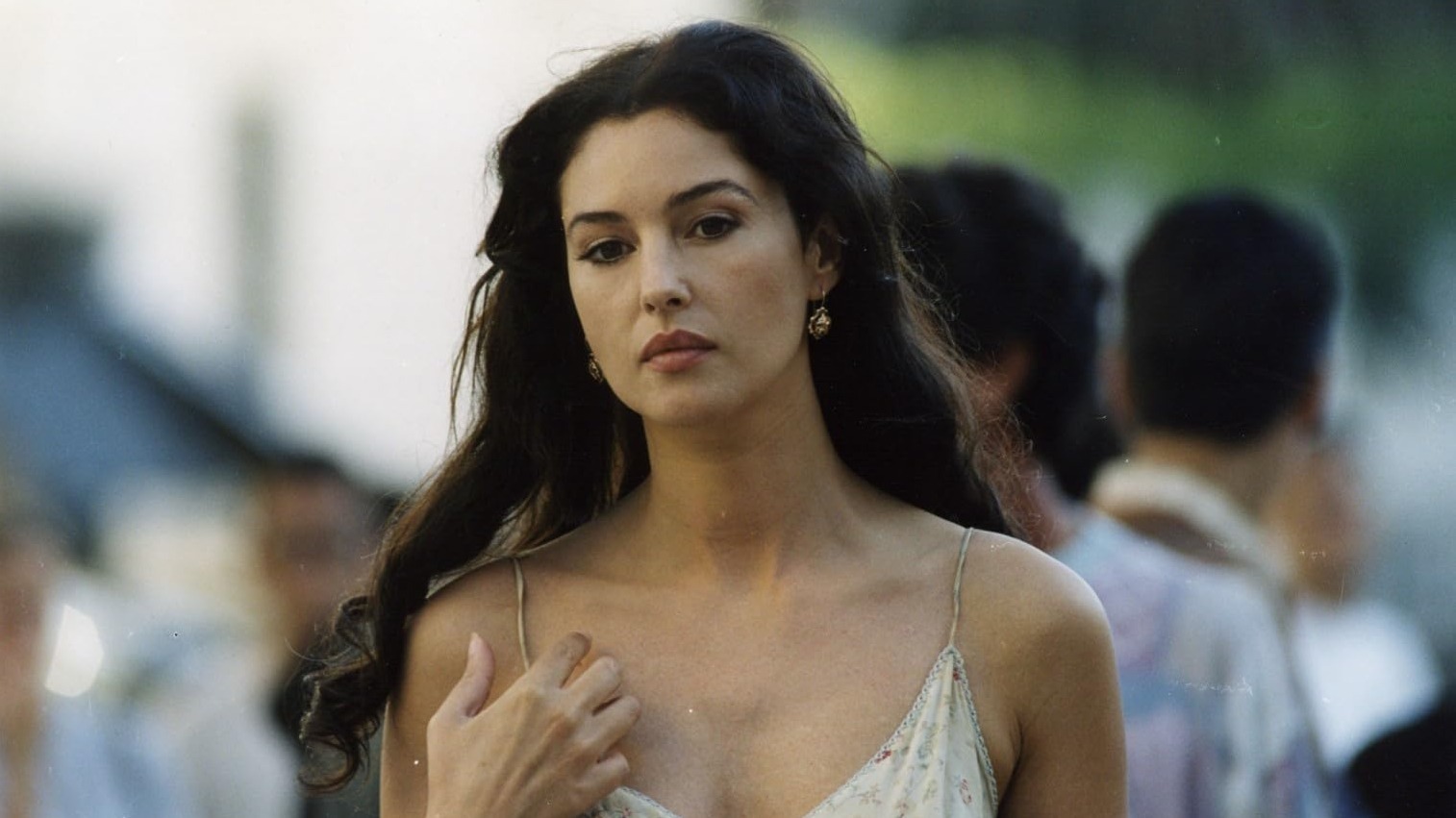
Few roles have defined Bellucci like Malèna, and for good reason. Her portrayal of a woman idolized, gossiped about, and punished for her beauty is both haunting and heartbreakingly real. Malèna is seen through everyone’s eyes but her own, and Bellucci somehow conveys a full inner world without saying a word. There’s defiance behind her silence, and vulnerability beneath her poise – a balancing act that made audiences reevaluate what “femme fatale” really means. Over time, what was once viewed as a story about male obsession became recognized as a portrait of resilience. It’s the role that turned her into legend.


































